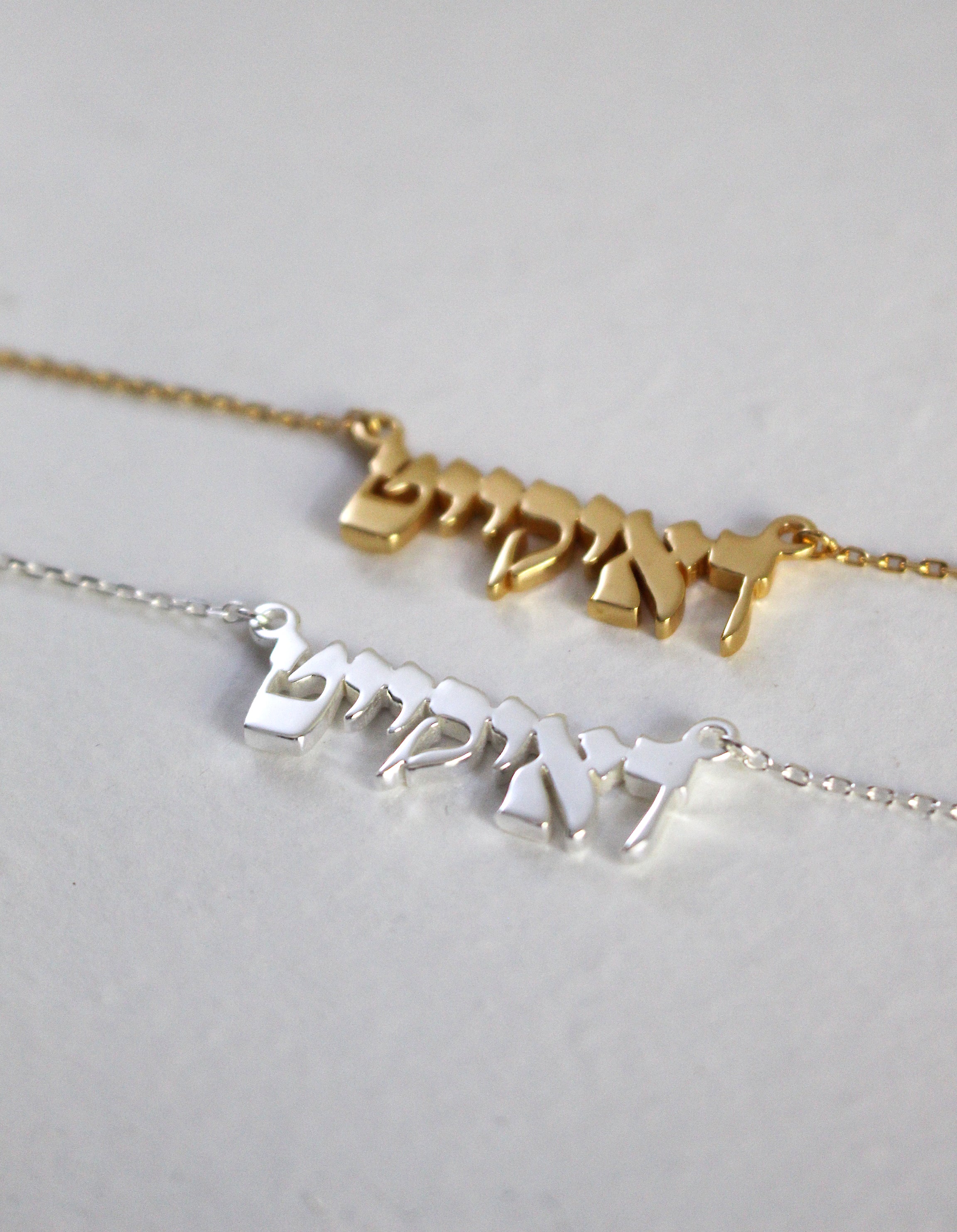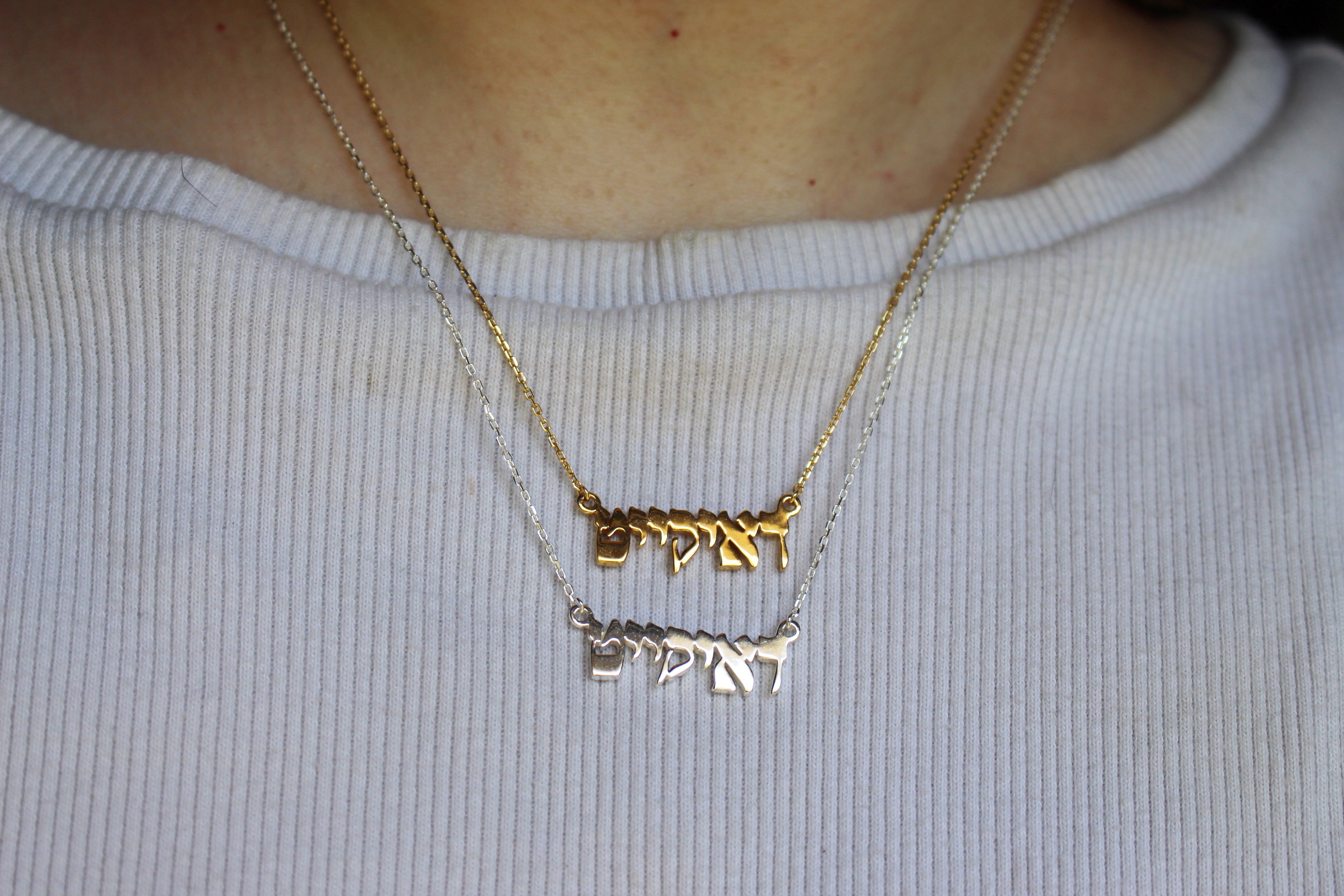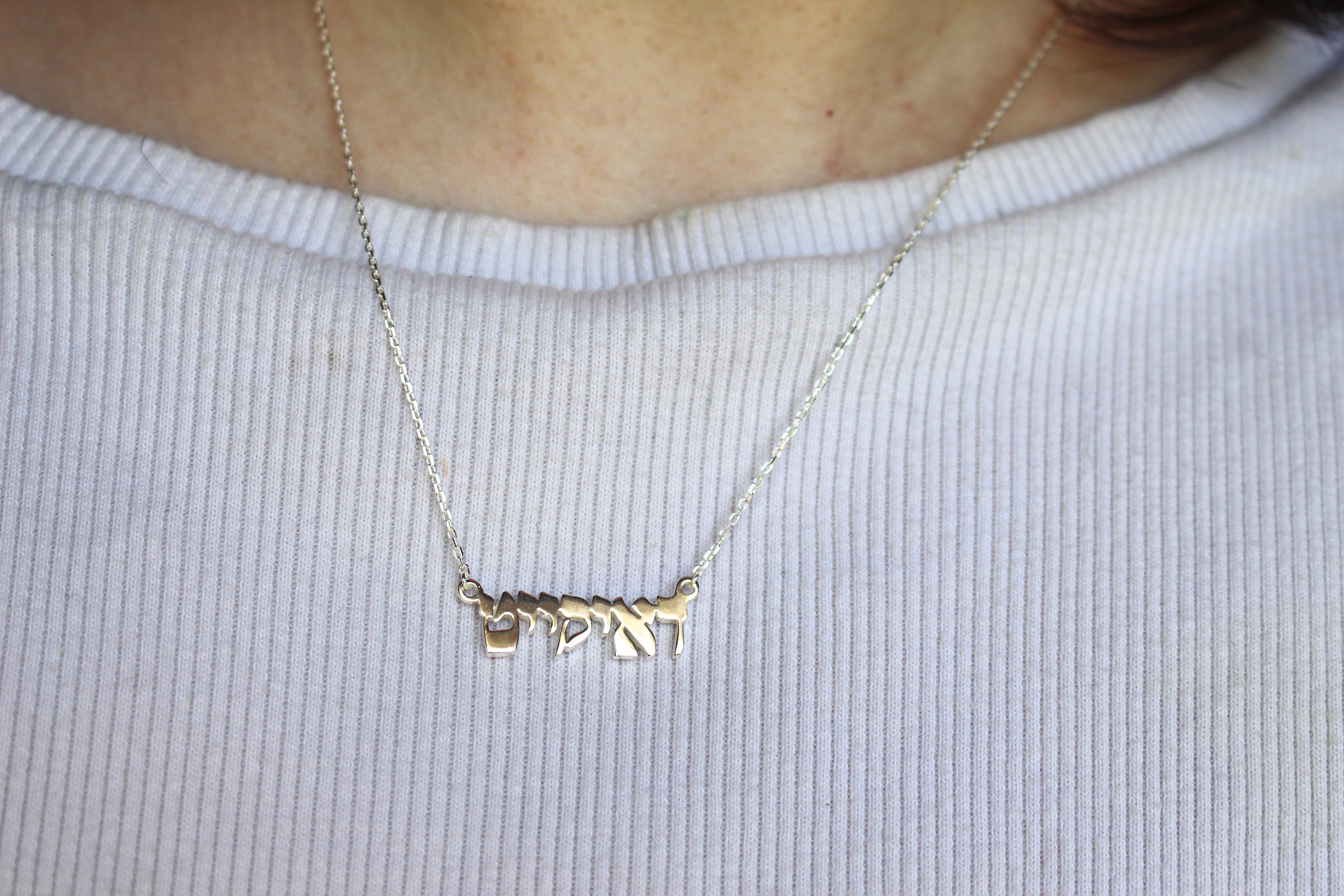In Judaism, there is great power in found in both words and names. HaShem created the Universe through the power of speech, literally speaking it into existence*. In Kabbalah Maasit, or practical Kabbalah, we see the names of HaShem used to create tangible change. In other forms of Jewish mysticism, and even everyday practice, the names of HaShem are used to protect Jews. The true name of HaShem is intentionally ineffable, unable to be accurately spoken aloud, and for good reason. Instead, we frequently call G-d "HaShem", which literally translates to, "the name".
When Avraham and Sarah became the first Jews, their names were changed from Abram and Sarai, an ever-present reminder of their Jewishness and covenant with HaShem. However, like many things, Hebrew names have evolved over the centuries. Here is everything you've ever to wanted to know about Hebrew names.

What is a Hebrew name?
A Hebrew name is a name of Jewish origin, usually Hebrew, Yiddish, Ladino, or other diasporic languages, used during religious services, though ideally used at all times. In order to stay safe, many Jews have a non-Jewish name as well as a Jewish name to be used during religious activities.
This means that if your legal name is a Jewish name, that is your Hebrew name. It can be pronounced as is or in Hebrew. Example: the English Rachel (ray-chull) may be pronounced as such or in Yiddish (ruh-khel) or Hebrew.
Why are they important?
Hebrew names have varying significance to different groups. For many Jews, the name is important as it signifies their identity and their covenant with HaShem. There is also a belief that the name is prophetic and bestows the person with the blessing of the name. For example, Rafael means "HaShem has healed" and is thought to bring the person good health. Hebrew names are used within Jewish ceremonies. When praying for someone's health, it is their Hebrew name that is used. When signing the Ketubah, or marriage contract, the Hebrew name is used. This name is often seen as representing the innermost essence of a Jew.
For a time, only men were bestowed Hebrew names across Europe, while women were more commonly given solely secular names.
How do I get a Hebrew name?
Generally, the Hebrew name is chosen at birth. However, for converts or Jews without a Hebrew name, it is picked later in life.
How are they chosen?
While there are no official rules in naming a child, there are many traditions (minhagim) regarding choosing Hebrew names. In America, it is common for Hebrew names to be phonetically similar to the English name, but names can be chosen to honor a deceased family member (Ashkenazim typically do not name their children after a living relative), honor a person (naming to honor Rabbis is common), a biblical name, or even a name that has a special meaning. Names are again chosen with prophetic meaning in mind. To bring a light, happy human into the world, the name "Or" or "Orli" may be chosen, both meaning light. In Sephardic customs, children are often named after their grandparents, dead or alive.
In Ashkenazi culture, naming a child after a living relative is taboo, as it is commonly believed that the name invokes the spirit, and it can be harmful to both the living namesake and the child. It is also commonly agreed that parents should agree on the name child of their child, though there are some traditions that the mother suggests the name of the first child, the father the second, and so on. This is not a universally Jewish tradition.
Can I change my Hebrew name?
Yes. Like any name, you can change your Hebrew name, though it is usually done after deep introspection and discussion with a religious or spiritual guide. As previously mentioned, a name is meant to be prophetic and represent the person, but we know that it is not always the case. Should a person need to choose a more fitting name, for whatever reason, they should. It is greatly important that the new name be used rather than the old one.
Can I use my Hebrew name all the time?
Yes. In fact, many scholars and rabbis believe that using your Hebrew name at all times is preferred as it provides a deeper sense of connection with your Jewish identity and self and foregoes the rift of having any semblance of a "separate" identity. Of course, there are many whose only name is their Hebrew name.
Names of the Sick
In some communities, when a person is sick, a new name is either added to their name or their name is changed completely. The Talmud discusses changing the name in regard to healing here,"Four things annul the decree that seals a person's fate; namely, alms, prayer, change of name, and change of deeds" (R. H. 16b). The idea is that by giving a new name, a new lease on life is given and that person shall recover to live that new life under a new name. In other words, the decree of sickness set to the old name remains connected to the essence of that name, not of the new one (2). If a name is merely added to the previous name, it generally will focus on healing and a good, long life. For example, Rafael, Chai, Azriel, Shalom, etc.
Parents Names
When reciting a prayer for someone, their Hebrew name is used as well as the Hebrew name of their parents. Example: Ephraim ben Avraham, or Michal bat Shoshanna. If a person does not have Jewish parents, the names Avraham and Sarah or Adam and Chava can be substituted in their stead. In some movements, should a person not have a Jewish father, their mother's name would be used, with the reverse for patrilineal Jews.
Importance in Magical Workings
In magical workings, using the Hebrew name of a person calls upon their true essence, invigorating the power of the magic. When praying for someone to be healed, it is their Hebrew name that is used, as the connection between the Hebrew name and the essence of the person is important in their healing. When the Hebrew name is known and available for use, it is the preferred choice as its direct connection to the human essence is far stronger. Think of it like having GPS coordinates to a specific location, rather than simply the street address.
The concept of true names is not a new one, nor is it specific to Judaism, though the commonality and variance within Jewish acknowledgments of the name is special.
* While this is largely metaphorical, it is a story signifying the power and weight of words and speech. It represents the reverence Judaism holds in regards to speaking out.
SOURCES:
-
https://www.bl.uk/hebrew-manuscripts/articles/the-power-of-language-in-jewish-kabbalah
-
http://www.jewishencyclopedia.com/articles/13583-shinnuy-ha-shem
-
https://www.chabad.org/library/article_cdo/aid/80495/jewish/Why-Do-I-Need-a-Hebrew-Name.htm
-
https://www.myjewishlearning.com/article/how-to-pick-a-hebrew-name/







